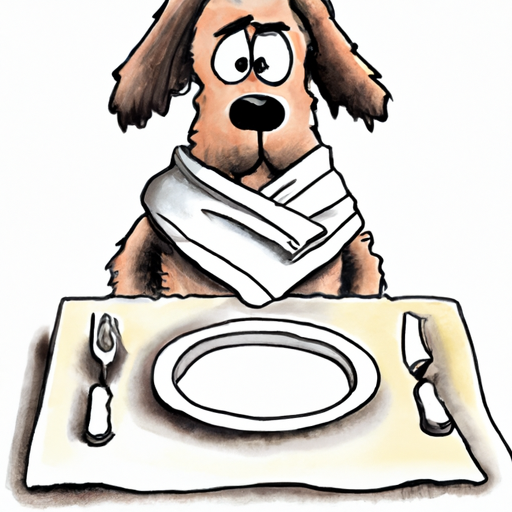Understanding Your Dog’s Eating Behavior
You take care of your dog, feed them, love them and make sure they have everything they need. But have you ever wondered if your furry friend knows when they have had enough to eat? It’s a question that many dog owners ask, and the answer isn’t as straightforward as you might think.
Dogs evolved as opportunistic eaters. This means that in the wild, they would eat whenever food was available because they didn’t know when they would find their next meal. This instinct is still strong in many dogs today, which is why some seem to eat constantly if given the chance.
Recognizing Signs of Fullness in Dogs
You might think that your dog will stop eating when they’re full, but this isn’t always the case. Some dogs will continue to eat even after they’re full, especially if they’re being fed a diet that they find particularly tasty. However, there are some signs that you can look out for to tell if your dog is full:
- They start eating more slowly.
- They leave food in their bowl.
- They turn away from food.
If your dog is showing these signs, they might be full. However, it’s also important to note that these signs might not always be reliable. Some dogs might leave food in their bowls for other reasons, such as being bored with their food or feeling unwell.
The Dangers of Overeating in Dogs
Overeating can lead to obesity, which is a serious health problem for dogs. According to a study by the Association for Pet Obesity Prevention:
| Year | Percentage of Obese Dogs |
|---|---|
| 2018 | 55.8% |
| 2019 | 56.9% |
| 2020 | 58.3% |
Obesity can lead to a variety of health problems in dogs, including diabetes, heart disease, and arthritis. It can also shorten a dog’s lifespan. So, it’s important to make sure your dog isn’t eating more than they need.
How to Prevent Overeating in Dogs
So, how can you make sure your dog isn’t overeating? Here are some tips:
- Feed your dog at set times each day, rather than leaving food out all the time.
- Measure out your dog’s food to make sure they’re not getting too much.
- Choose a high-quality dog food that will satisfy your dog’s hunger without giving them too many calories.
- Discourage begging and table scraps.
It’s also a good idea to talk to your vet about your dog’s diet. They can help you determine how much food your dog needs and whether they are at a healthy weight.
Frequently Asked Questions (FAQ)
Q: Why does my dog act like they’re always hungry?
A: This could be due to a number of factors, such as boredom, dietary deficiencies, or even certain medical conditions. If you’re concerned about your dog’s eating habits, it’s best to consult with a vet.
Q: My dog is overweight. How can I help them lose weight?
A: Start by consulting with a vet to determine a healthy weight for your dog. Then, you can work on reducing their calorie intake and increasing their physical activity.
Q: How much should I feed my dog?
A: This depends on a variety of factors, including your dog’s age, size, and activity level. Your vet can help you determine the right amount.
Q: Can dogs eat human food?
A: While some human foods are safe for dogs, others can be harmful or even toxic. It’s best to stick with dog food and treats specifically designed for dogs.



